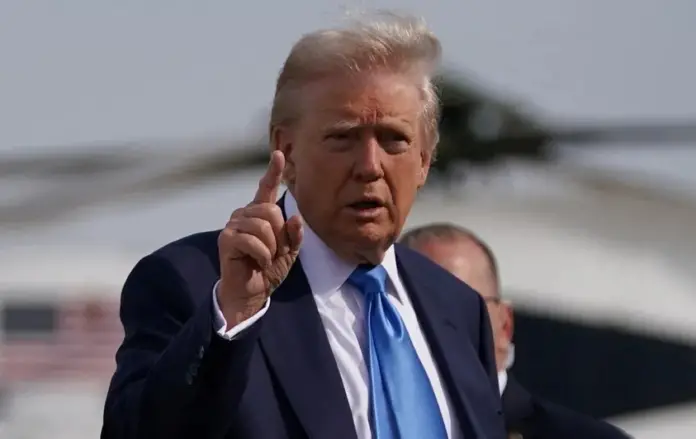With his decision to impose a 25 percent tariff on steel, aluminum, and automobiles on Mexico and Canada, threaten sanctions for fentanyl and immigration, and reinvent trade rules, Donald Trump began to de facto dismantle the USMCA a year before its review, which could trigger a “decoupling” of its two partners and undermine North American competitiveness, according to US experts.
Although the US-Mexico trade relationship registered bilateral trade of $840 billion last year and the US-Canada relationship $720 billion, trade specialists warn that the continued North American integration, which has allowed the three partners to triple their trade since the North American Free Trade Agreement (NAFTA) came into force in 1994, is at risk.
“President Trump’s approach toward his neighbors threatens to undo that history of trade, integration, and trust, in addition to damaging the economies of all three nations,” warns Christopher Hernández-Roy, deputy director of the Americas Program at the Center for Strategic and International Studies (CSIS).
In his opinion, Trump’s threats against Canada and Mexico, along with his comments about making Canada the 51st state, have generated confusion and uncertainty, halted investment decisions, created distrust among former allies, and called into question the very viability of the North American project.
“While geography, existing trade ties, and U.S. consumer needs will ensure continued regional trade, it is possible that Canada and Mexico will begin a process of decoupling.”
A Cato Institute analysis confirms that a significant portion of Canadian and Mexican imports do not enter the United States under the USMCA and therefore remain subject to Trump’s new 25 percent tariffs (or, in the case of Canadian energy and potash, 10 percent).
And even though the USMCA sets nearly all U.S. tariff rates on Canadian and Mexican imports at zero, more than half enter without importers requesting preferential treatment under the USMCA.
Instead, those products enter subject to the standard U.S. most-favored-nation (MFN) tariff, which is zero for many items, the analysis argues.
“If importers fail to demonstrate compliance in this case, nearly 40 percent of U.S. imports from Canada and Mexico in 2024, valued at $363.7 billion and representing a large portion of total U.S. imports of certain products, would simply not be able to comply with Trump’s new tariff exclusion as currently written,” it states.
For former White House Deputy Trade Representative A.C. Mahoney, before Trump’s tariff war, the key question was whether the USMCA would be extended when it is renewed on its sixth anniversary in July 2026.
But “after President Donald Trump’s historic return to the White House and his recent decision to impose 25 percent tariffs on most imports from Canada and Mexico, the question now is whether the agreement will survive into 2025,” he said. Mahoney noted that, in addition to the tariff issue, the usual array of trade irritants such as tomatoes and milk persist, as well as new grievances stemming from the USMCA itself, such as the parties’ interpretation of the automotive rules of origin and Mexico’s implementation of its 2019 labor reform law.
Given this situation, the Petersen Institute for International Economics (PIIE) designed potential scenarios depending on whether the partners reach a no-deal that would ward off the threat of Trump’s tariffs.
In a first scenario, the United States could withdraw from the USMCA and permanently impose the 25 percent tariff on Mexico and Canada if negotiations on drugs and immigration fail.
Second, Trump could insist on including some kind of bilateral trade balance provision in the USMCA review.
In a third scenario, Trump could insist on increasing the U.S. most-favored-nation (MFN) tariff on automobiles, currently at 2.5 percent. If the MFN tariff is increased, this could incentivize automakers with plants in Mexico and Canada to comply with the USMCA’s rules of origin, they indicated.

Source: milenio




